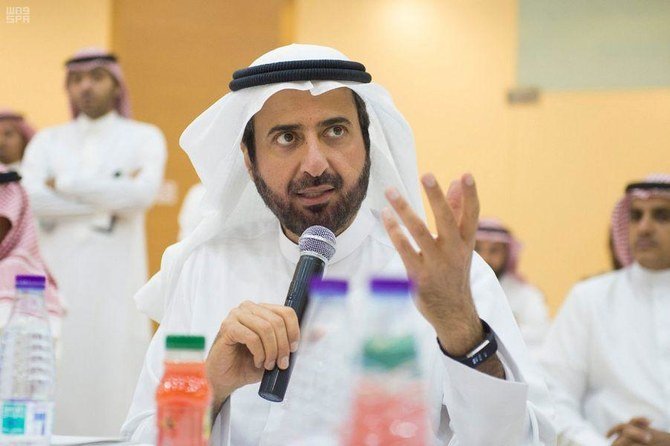RIYADH: Saudi Arabia is building a robust health research ecosystem to inform policy development and promote sustainable growth, three Saudi health officials said on Tuesday.
The comments were made during a panel discussion at the Global Healthspan Summit 2025 in Riyadh, which has Arab News as a media partner.
Speaking during the panel discussion titled “GCC Exchange,” Dr. Nouf Al-Numair, secretary general of the Saudi Ministerial Committee for Health in All Policies (HiAP), highlighted how the Kingdom is embedding health considerations into all sectors to tackle age-related diseases and foster collaboration across the Gulf Cooperation Council.
“In Saudi Arabia, we are governing HiAP at a higher level — it’s embedded within the central government,” said Dr. Al-Numair.
She added that through a ministerial committee exercising this topic, HiAP is supported by 11 ministries working together to activate health in all policies across the Kingdom.
Dr. Al-Numair highlighted Saudi Arabia’s focus on developing a strong research ecosystem as a foundation for addressing national challenges.
“This ecosystem is crucial because it informs policy development and research allows us to set priorities, understand challenges and proactively solve them through policies — not just isolated initiatives or programs,” she said.
Dr. Al-Numair outlined five key pillars essential for building a strong research ecosystem: Strong governance and alignment, building capabilities, clear funding mechanisms, data and digital infrastructure, and collaborative platforms.
“We need a robust governance structure to align research with national strategies,” she said, highlighting the importance of central coordination to ensure that research addresses priority areas.
Dr. Al-Numair said that investing in the workforce and preparing for futuristic jobs within the research environment is key to creating a sustainable ecosystem.
“A defined funding mechanism ensures that researchers, scientists and innovators are adequately supported to contribute to the ecosystem,” she added.
Digitalizing data and creating a comprehensive digital infrastructure is critical for enabling research and collaboration, she said.
Dr. Majed Al-Jeraisy, executive director of research and education at the Saudi NIH, further highlighted the challenges of building research infrastructure from scratch and highlighted the need to first change cultural mindsets.
“This is the most important element to start with,” said Dr. Al-Jeraisy. “We need to shift the mindset and culture around research before focusing on other key elements such as setting clear milestones and measurable goals within the strategy.”
Dr. Al-Jeraisy also highlighted the importance of recruiting high-caliber scientists to support the collaborative nature of research into extending the healthy human lifespan.
He said that this research requires a collaborative approach between scientists and clinicians.
“This integration doesn’t exist yet, so we need to foster more collaboration and even recruit experienced scientists from abroad to embed this culture within the system.”
Leveraging artificial intelligence and big data is another critical priority, Dr. Al-Jeraisy added.
“Without a robust database for our community, we cannot develop a strategy, road map, or even efficient planning and funding,” he said.
Dr. Al-Jeraisy added that having sustainable funding is crucial.
“Setting up infrastructure requires securing resources to support long-term healthspan and longevity research.”
He added that the field demands sustained momentum and stakeholder engagement over time.
Adding to the discussion, Dr. Walid Al-Keridy, director, home health care administration at the Ministry of Health, highlighted how the ministry is taking a holistic approach to address healthy longevity and lifespan in alignment with Vision 2030.
“In the Ministry of Health, our North Star and vision are to ensure that every individual in our society is not only living longer, but also healthier, supported by a resilient healthcare system,” Dr. Al-Keridy said.
He outlined the ministry’s guiding principles, which prioritize prevention, health and digital transformation, private-sector partnerships and program sustainability.
Dr. Al-Keridy highlighted the importance of designing programs that meet people where they are, linking them to Vision 2030 priorities and ensuring sustainability.
“We address this at multiple levels within the ministry through resilient programs that ensure value in the healthcare system. These principles are embedded in our initiatives, such as the value-based program and even in our contractual agreements with new therapies,” he said.
The “GCC Exchange” panel explored how Gulf countries are fostering collaboration to tackle age-related diseases and promote sustainable growth in healthspan research.
Dr. Al-Numair concluded by highlighting Saudi Arabia’s leadership in health policy and research innovation within the region.
“By focusing on governance, capabilities, funding, infrastructure and collaboration, we can build a health ecosystem that not only addresses current challenges, but also prepares us for the future,” she said.


























